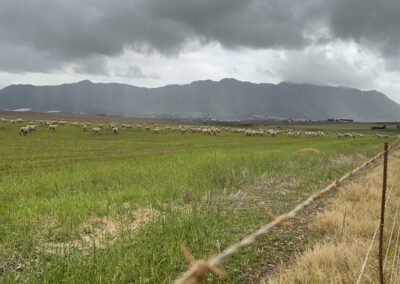07 December 2023
by Gray Maguire, Anthesis | CNG Senior Carbon Originator
With COP28 now fast approaching the halfway mark, a stock-take on the first week’s outcomes along with a forecast of what still lies ahead for the final week when the fanfare dies down, is in order.
As per usual with the start of the COP negotiations, things kicked off with a fair bit of fireworks, when the COP President, Dr. Sultan Al Jaber, announced a $30bn commitment to the United Arab Emirates’ newly launched catalytic climate finance vehicle, Altérra, that aims to mobilize $250bn in climate finance by 2030, with an emphasis on improving access to climate funding for the Global South. This was followed by several days of pledges, totaling over $650 million, to the global Loss & Damage fund established at COP27, which aims to compensate developing countries for unavoidable climate impacts. In a similar vein, the second replenishment round for the Green Climate Fund has been well supported with pledges now surpassing the previous top-up round with a total of $12.8bn.
Closer to home, the African Development Bank announced the launch of the Climate Action Window under the African Adaptation Accelerator, to raise $14bn in adaptation support for 37 low-income countries through distributed renewable energy provision, climate-resilient agricultural technologies and insurance products for small-holder farmers, as well as the rehabilitation of one million hectares of degraded lands. This was complimented by the announcement from the COP Presidency on Friday that 134 world leaders had signed up to its agriculture, food and climate action declaration, which will provide USD $2.5 billion in funding to support climate resilient agriculture.
While all of these finance commitments are great and very much necessary, the core objective of COP28 is to ensure that the Global Stocktake of our collective emission reductions to maintain a habitable climate, are effective. Simply put, we are a long way off from where we need to be when it comes to meeting these targets and by early 2025 each country will have to come back with a plan to close the gap. This COP must develop the set of agreed goals and approaches to guide individual country strategies and with 90% of the agreements’ text still to be written, this will be no small task.
Headlines from the event report that 118 countries, including the US, UK, India, China and the EU, are backing a pledge to triple clean energy production by 2030, but with the IMF stating that fossil-fuel subsidies hit a record $7 trillion in 2022, these pledges must be taken with a dollop of salt. Eliminating just these subsidies alone would free up 7.1 percent of global gross domestic product, in orders of magnitude larger than the figures put out in Dr. Bjorn Lomborg’s article published on Monday. Indeed, vested interests are thick on the ground at the negotiations as well, not least of all with the COP President, Dr. Sultan Al Jaber who lost his composure in an interview with former UN special envoy for climate change, Mary Robinson, in the build-up to the negotiations, when he said that “there is no science out there, or no scenario out there, that says that the phase-out of fossil fuel is what’s going to achieve 1.5C.” Given his company’s decision last year to invest $150bn to increase oil production to 5 million barrels a day by 2027, I’m not surprised he’s less than ecstatic with proposals to cut emissions and boost renewable energy production.
With one week left to go on thing is for sure. The stakes at this year’s COP are as high as they’ve ever been and the stage is set for a clash of interests of epic proportions.



